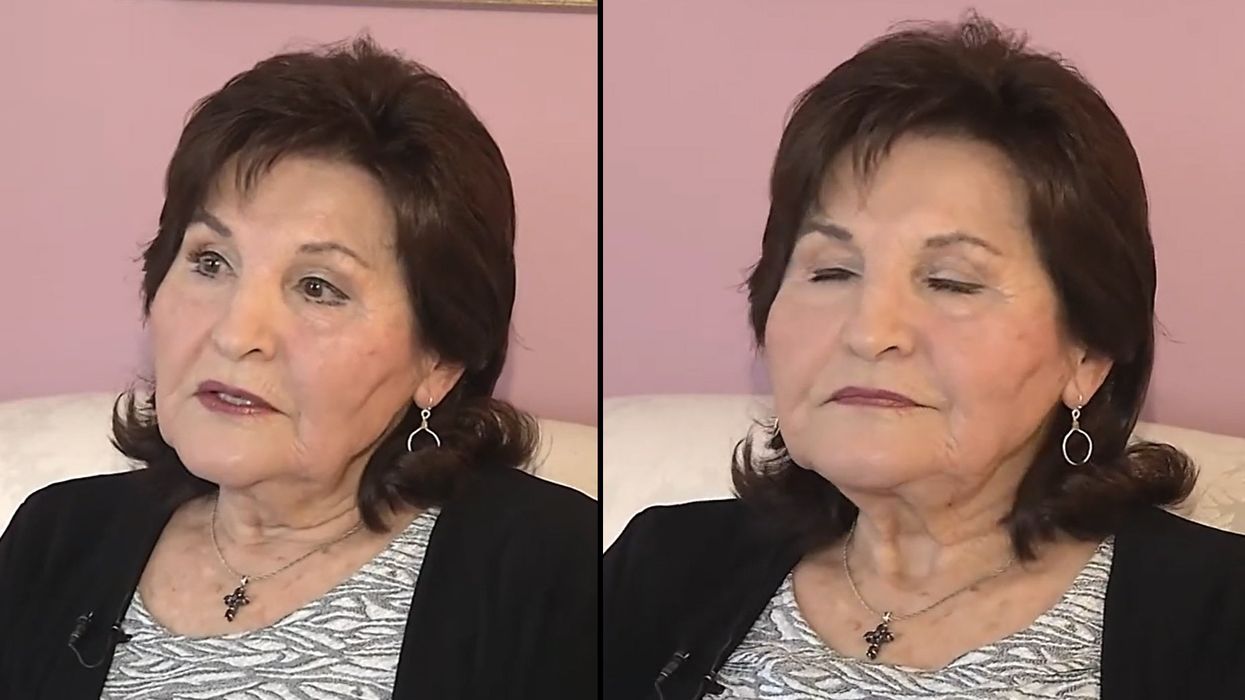
© 2024 Blaze Media LLC. All rights reserved.
Horowitz: Life sentence overturned for cartel members who killed ICE agent
February 18, 2020
Illegal aliens can break into our country with impunity and sue ICE officers if they don’t like conditions in the detention facilities. But if an ICE agent is killed by cartel assassins on a mission in Mexico on behalf of the United States government, suddenly borders seem to be important.
On February 15, 2011, members of Los Zetas cartel ambushed two ICE HSI agents traveling in Mexico. They murdered Jaime Zapata, but his partner, Victor Avila, managed to survive by remaining locked in the armored vehicle with diplomatic plates until police arrived on the scene. Last week, the U.S. Court of Appeals for the District of Columbia, the second most important federal court, overturned two murder convictions from 2017 for two of the hit men, Jose Emanuel “Zafado” Garcia Sota and Jesus Ivan “Loco” Quezada Pina. They are still serving up to life in prison for the basic murder charge and for a firearms charge, but this decision, unless overturned by the Supreme Court, will give these two cartel members the possibility of parole down the road.
Victor Avila and the parents of Jaime Zapata have been trying to get justice as well as answers from the U.S. government on the nature of the mission that led them into the trap. Zapata’s parents filed a $25 million wrongful death claim against the government, charging that the weapons used against them by the Zetas were part of the “Fast and Furious” gun-running scandal. But that lawsuit, according to Avila, was dismissed in the Southern District of Texas because the federal government did not cooperate by providing the plaintiffs with the documents they needed.
“These families, indeed the American public, are owed the truth about this tragedy and about the circumstances that led to guns going to Mexico — guns that shot two Americans and which may have killed many others,” wrote Judge Hanen in reluctantly dismissing the lawsuit because plaintiffs could not produce enough documents.
I interviewed Avila on my podcast last June in a two-part series (here and here) where he shared the details of the ambush, his quest for elusive justice, and how he has felt let down by our own government both during and after the attack. There’s also a documentary, “Agent Down on Highway 57,” that delves into the questions about the dubious mission they were tasked with, as well as the cover-up after the attack, which was not widely reported in the media at the time.
At issue in the federal appeals court case is whether 18 U.S.C. §1114, which criminalizes the murder of federal agents, applies outside the country. Two other appeals courts, the Second and Eleventh circuits, have ruled in the past that this section is applicable abroad, but the D.C. court ruled that one must presume “that Congress ordinarily legislates with respect to domestic, not foreign, matters.”
Victor Avila, who himself was gravely wounded during the attack, was devastated. “The Zapata family and I are devastated by the appellate court’s decision,” said Avila in a statement to CR. “Other appellate courts have upheld the extraterritorial occurrence in this statute. Why did the D.C. Circuit Court of Appeals rule this way knowing this precedent exists? What message is being sent to the terrorist cartels in Mexico and around the world? This threatens the safety of our agents in Mexico and abroad. I will do everything I can to have Congress amend the statute and have the Dept. of Justice appeal this egregious decision.”
In total, there were seven individuals extradited for the murder. The other five weren’t even sentenced to mandatory life sentences to begin with because the Justice Department under Obama accepted a plea bargain. Their sentences ranged between 12 years and 35 years. Avilla tells me that the one with the 12-year sentence, Francisco Carbajal Flores, is slated to be released in August 2021.
“It’s unbelievable, this guy’s entire family was brought here on visas and were housed here for the duration of the trial on taxpayer dime. Yet my family had to pay for arrangements to stay in D.C. during the trial, even though I was almost killed by them while serving as a federal agent.”
This court decision leaves a gaping hole in federal law for seeking justice against those who murder federal agents abroad. Last week, the Federal Law Enforcement Officers Association sent a letter to Attorney General William Barr urging him to appeal this decision.
“The message this ruling sends is one of open season on federal law enforcement officers who can now be targeted overseas,” warns the federal law enforcement association representing 28,000 agents. “Under this ruling, criminals and terrorists will take liberties that targeting a U.S. federal law enforcement officer, will bear no additional punishment, and if apprehended, may never be charged for their death in a United States Court.”
Nothing, of course, is stopping Congress from acting. Why is there never any sense of urgency in Congress to fix judicial loopholes that let off Zetas hit men or criminal aliens in our own country, such as Jose Zarate, Kate Steinle’s killer? Where is the “criminal justice reform” to close these loopholes?
Want to leave a tip?
We answer to you. Help keep our content free of advertisers and big tech censorship by leaving a tip today.
Want to join the conversation?
Already a subscriber?
Blaze Podcast Host
Daniel Horowitz is the host of “Conservative Review with Daniel Horowitz” and a senior editor for Blaze News.
RMConservative
Daniel Horowitz
Blaze Podcast Host
Daniel Horowitz is the host of “Conservative Review with Daniel Horowitz” and a senior editor for Blaze News. He writes on the most decisive battleground issues of our times, including the theft of American sovereignty through illegal immigration, theft of American liberty through tyranny, and theft of American law and order through criminal justice “reform.”
@RMConservative →more stories
Sign up for the Blaze newsletter
By signing up, you agree to our Privacy Policy and Terms of Use, and agree to receive content that may sometimes include advertisements. You may opt out at any time.
© 2024 Blaze Media LLC. All rights reserved.
Get the stories that matter most delivered directly to your inbox.
By signing up, you agree to our Privacy Policy and Terms of Use, and agree to receive content that may sometimes include advertisements. You may opt out at any time.



